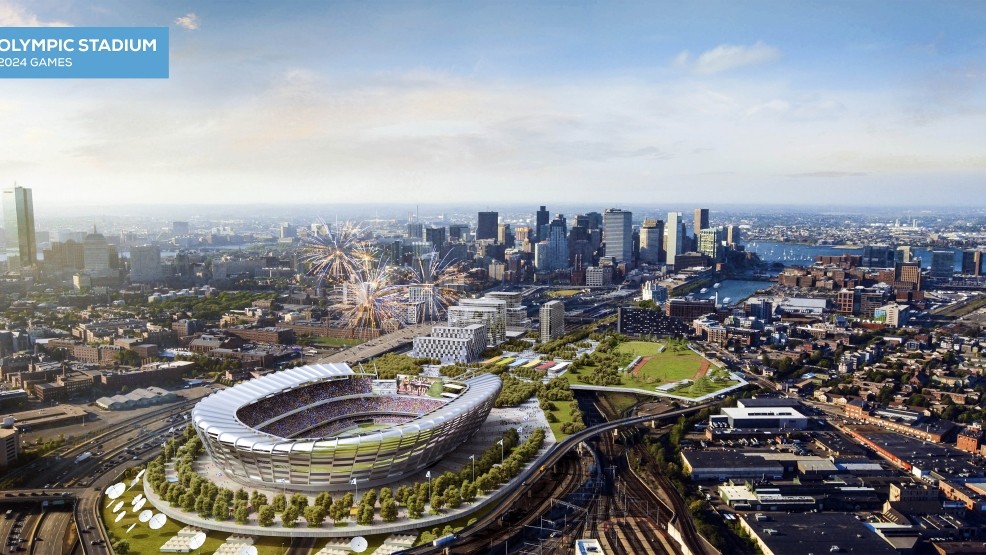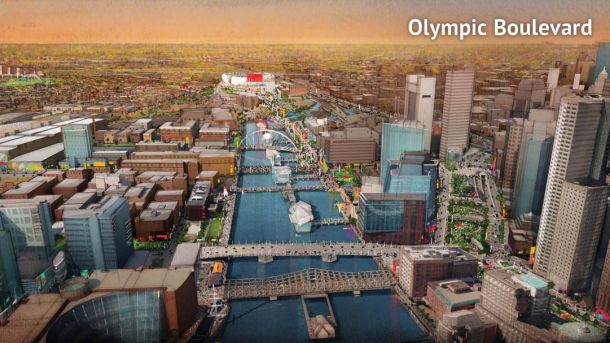The 2024 Olympics are fast approaching, and the race to see what city hosts it is heating up. As many know, Boston has been selected for the location of the United States’ bid.
The group responsible for Boston’s bid, headed by Corey Dinopoulos and Eric Reddy, has revised its original bid into what is now the $4.6 billion bid 2.0. Bid 2.0 proposes that hosting the Olympics will create jobs, increase tax revenue, and create new housing.
Bid 2.0 claims that hosting the Olympics will create 4,100 jobs between 2018 and 2023, 54,300 jobs in 2024, and 2,200 jobs in 2025 and beyond, creating a total of 60,600 new jobs. The revised bid also claims that hosting the Olympics will massively increase Boston’s annual tax revenue. As it stands now, Boston rakes in about $1 million annually from tax revenue. Bid 2.0 states that if Boston hosts the Olympics, that annual tax revenue will increase to $10 million in 2030, $32 million in 2040, $70 million in 2050, $141 million in 2060, $257 million in 2070, and $377 million in 2080. Bid 2.0 also claims that 8,000 new housing units will be created, with 4,000 apartments in Widett Circle, 3,000 apartments in Columbia Point, and 1,000 student housing units in Columbia Point.
Bid 2.0 also makes the point that the last three games in the U.S. generated a surplus. This is correct, as in 1978, Los Angeles had a net revenue of $232.5 million. In 1996, Atlanta had a net revenue of $10 million, and in 2002, Salt Lake had a net revenue of $101 million. However, these three cities combined spent a total of $3.503 billion. Boston alone is proposing to spend $4.6 billion. Organizers have predicted that the games will take in at least $4.8 million in revenue, which would leave Boston with a comfy $200 million in net revenue. However, with the games being nine years away, that revenue prediction has a very large plus-minus factor associated with it.
Bid 2.0 proposes to use pre-existing stadiums, which would certainly keep the price tag tame. The venues of Harvard Stadium, Agganis Arena, TD Garden, BCEC, Copley, Tsongas Center, Gillette Stadium, DCU Center, Matthews Arena, Conte Forum, New Bedford, Billerica, Harambee Park, Deerfield Park, Alumni Stadium, White Stadium, Franklin Park, Squantum, Merrimack River, Herder Park, Widett Circle, and Columbia Point are all in the plans of being used for different events. However, Bid 2.0 does propose to lease a new temporary stadium to accomodate certain events.

One of the venues that Bid 2.0 proposes to erect, as seen above, will be able to hold 69,000 people. It will have an Olympic-sized track surrounding an infield space, as well as warm-up facilities, a stage for Opening and Closing Ceremonies, and broadcast space. The venue is planned to have 18 blocks of mixed-use development, as well as more parking space, a new commuter rail station, and pedestrian and bike connections from South Station to South Boston.
These are just among some of the many proposals that Bid 2.0 contains, and from now to 2017 there will be a smoregasbord of changes to the bid.








































